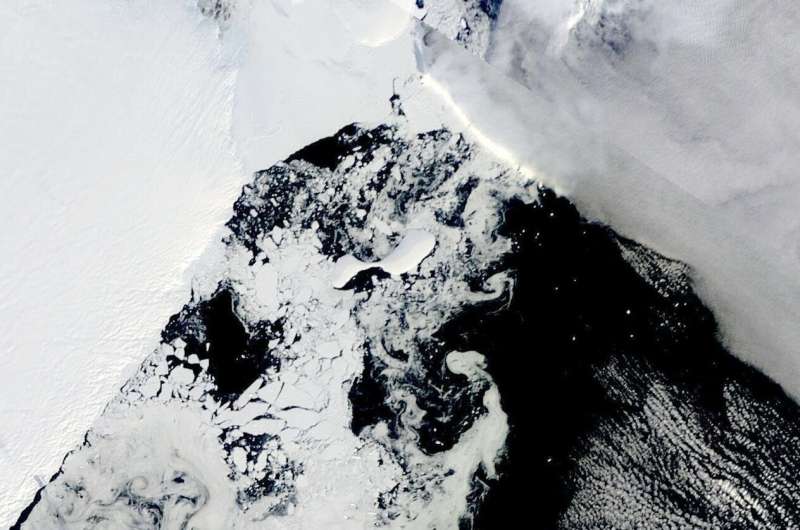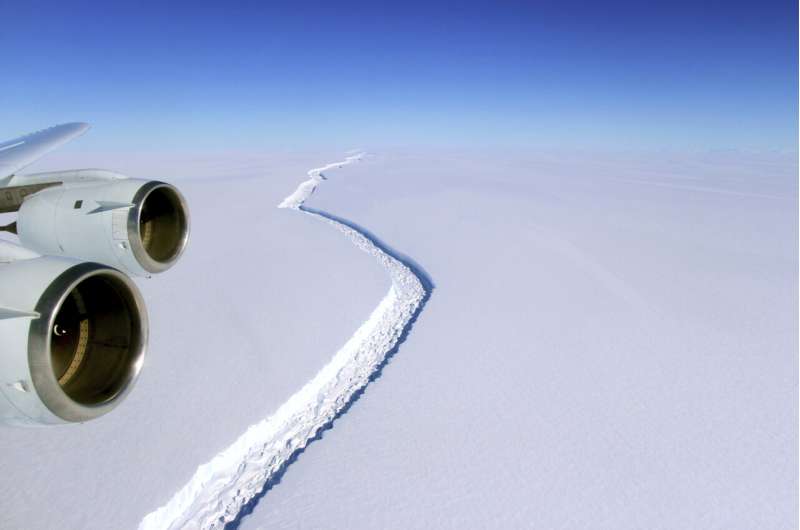Four dozen Antarctic ice shelves have shrunk by at least 30% since 1997 and 28 of those have lost more than half of their ice in that time, reports a new study that surveyed these crucial "gatekeepers'' between the frozen continent's massive glaciers and open ocean.
Of the continent's 162 ice shelves, 68 show significant shrinking between 1997 and 2021, while 29 grew, 62 didn't change and three lost mass but not in a way scientists can say shows a significant trend, according to a study in Thursday's Science Advances.
That melted ice, which usually pens larger glaciers behind it, then goes into the sea. Scientists worry that climate change -triggered melt from Antarctica and Greenland will cause dangerous and significant sea rise over many decades and centuries.
"Knowing exactly how, and how much, ice is being lost from these protective floating shelves is a key step in understanding how Antarctica is evolving," said University of Colorado ice scientist Ted Scambos, who wasn't part of the study.
Scambos said the study gives insight into fresh water that's melting into the Amundsen Sea—"the key region of Antarctica for sea level rise"—that not only adds height to the ocean, but makes it less dense and salty.
The biggest culprits were giant icebergs breaking off in 1999, 2000 and 2002 that were the size of Delaware, he said. The study also looks at ice melting from warm water below.
Ice shelves are floating extensions of glaciers that act "like the gatekeepers" and keep the larger glacier from flowing more quickly into the water, the study's lead author said.

This satellite image provided by NASA, shows icebergs that formed through an ice shelf collapse. Dozens of Antarctica’s ice shelves, floating extensions of glaciers, showed significant shrinking between 1997 and 2021, a study published Thursday, Oct. 12, 2023, found. Credit: Dr. Christopher A. Shuman, UMBC/NASA via AP, File
All told, Antarctic ice shelves lost about 8.3 trillion tons (7.5 trillion metric tons) of ice in the 25-year period, the study found. That amounts to around 330 billion tons (300 billion metric tons) a year and is similar to previous studies.
But the overall total is not the real story, said study lead author Benjamin Davison, a glaciologist at the University of Leeds in the United Kingdom.
What's most important, he said, are the patterns of individual shelf loss. The new study shows the deep losses, with four glaciers losing more than a trillion tons on the continent's peninsula and western side.
"Some of them lost a lot of their mass over time," Davison said. "Wordie is barely an ice shelf anymore."
The Wordie ice shelve, which holds back four glaciers near the tip of the Antarctic Peninsula, had a big collapse in 1989, but has lost 87% of its remaining mass since 1997, Davison found. Neighboring Larsen A has lost 73% and Larsen B 57%. The largest of the Larsen ice shelves, Larsen C, has lost 1.8 billion tons (1.7 trillion metric tons) of ice, about one-eighth of its mass.
The biggest loss of all is in the Thwaites ice shelf, holding back the glacier nicknamed Doomsday because it is melting so fast and is so big. The shelf has lost 70% of its mass since 1997—about 4.1 trillion tons (3.7 trillion metric tons)—into the Amundsen Sea.
The ice shelves that grew were predominantly on the continent's east side, where there's a weather pattern isolates the land from warmer waters, Davison said. The ice shelves on the east were growing slower than the shelves losing ice to the west.
It's difficult to connect an individual ice shelf loss directly to human-caused climate change, but steady attrition is expected as the world warms, he said.




Recommended Comments
There are no comments to display.
Join the conversation
You can post now and register later. If you have an account, sign in now to post with your account.
Note: Your post will require moderator approval before it will be visible.